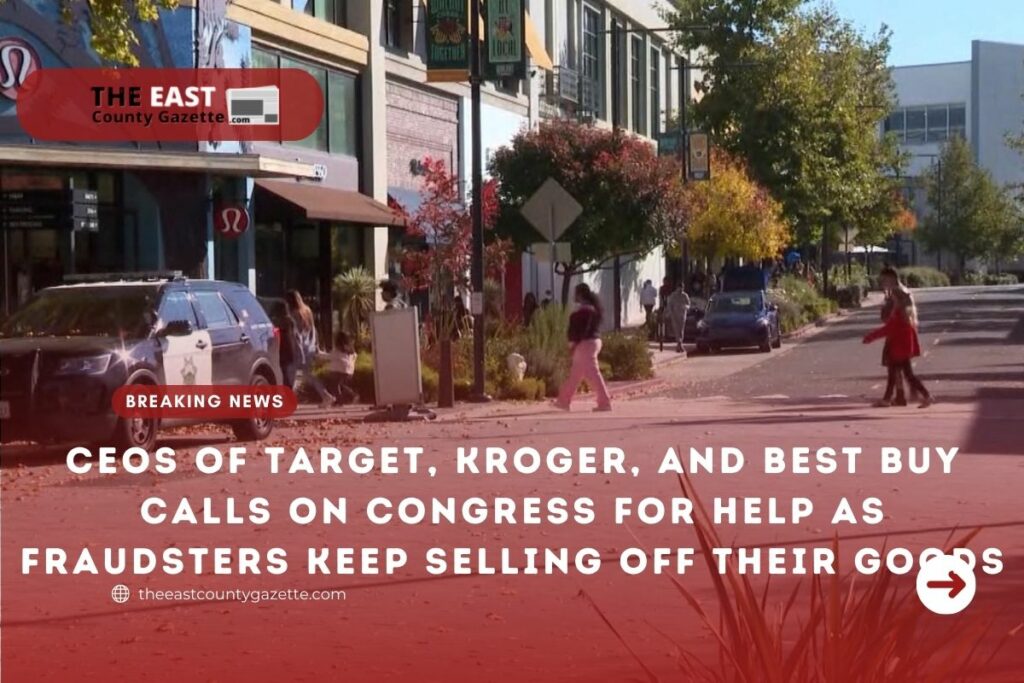Congress has been asked to take action by retail leaders tired of organized retail crime’s impact on their businesses.
On Thursday, twenty major retailers wrote to Congressional leadership urging them to pass legislation to prevent anonymous vendors from conducting illegal online business with their products.
Over the past months, retailers have noticed an increase in organized criminal activity, including brazen smash-and-grab thefts and the resale of stolen goods on online marketplaces.
According to the FBI and a 2020 survey from the National Retail Federation, the retail industry lost billions in the past year from the resale of these ‘hot’ items.
Among those who signed the petition are the CEOs of Target, CVS Health, Rite Aid, Home Depot, Dollar General, AutoZone, Kroger Co., Petco, Ulta Beauty, Nordstrom, Best Buy, and the president of Retail Industry Leaders Association.
Read More: Another Inflation Report is Coming. The Next Year Could Be Surprisingly Different
Specifically, the letter points to “anonymity of the Internet” and the “failure of certain marketplaces” to verify their sellers as factors contributing to fraudulent retail practices.
“In the current environment, criminal networks and unscrupulous businesses have exploited a system that protects their anonymity to sell unsafe, stolen, or counterfeit products with little legal recourse,” the letter states.
“This lack of transparency on particular third-party marketplaces has allowed criminal activity to fester.”
The bipartisan bill proposed by the CEOs requires online marketplaces to verify “high-volume third-party sellers.”
This bill is called the Integrity Notification and Fairness in Online Retail Marketplaces (INFORM) for Consumers Act.
If passed, bad or illegal sellers would be unable to use fake screen names and false business information to sell illicit goods.
In response to the INFORM Act, the Makers and Merchants Coalition, an group for third-party sellers online, has spoken out against the CEOs claims.
Insider previously reported that a spokesperson for the group said the act prevents big-box retailers from competing with smaller ones.
In the letter, the retail leaders don’t specifically name third-party marketplaces, but several e-commerce platforms have criticized the retailers’ assertion that they are not doing enough to monitor unauthorized activity.
Last year, Amazon enabled sellers to verify their identities using government-issued IDs with a live video and physical address verification method.
As of October, the INFORM for Consumers Act also received support from Amazon.
“Amazon does not allow third-party sellers to list stolen goods in our store, and we work closely with law enforcement, retailers, and brands to stop bad actors and hold them accountable, including withholding funds, terminating accounts, and making law enforcement referrals,” Amazon told Insider.
Read More: Bottlenecks at U.S. Ports Make Shipping Business Difficult
“We regularly request invoices, purchase orders, or other proofs of sourcing when we have concerns about how a seller may have obtained particular products that they want to sell.”
In accordance with Facebook’s Commerce Policies, the Facebook Marketplace prohibits the sale of stolen items. Legal requests are addressed promptly. A Meta spokesperson told Insider that the company also might share information with law enforcement, in line with its terms. Additionally, the spokesperson stated that the company may also share this information with regulators in order to avoid fraud or other fraudulent activities.
As of today, eBay has not responded to Insider’s request for comment.

